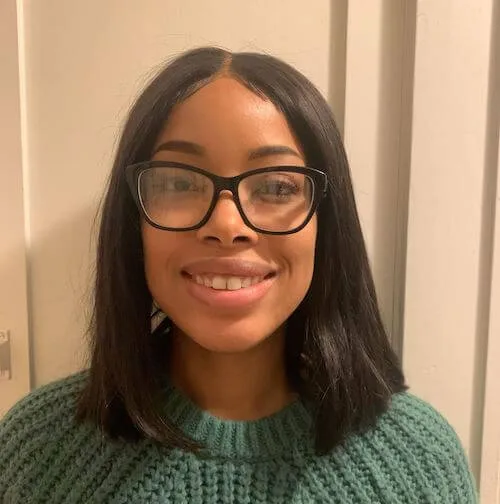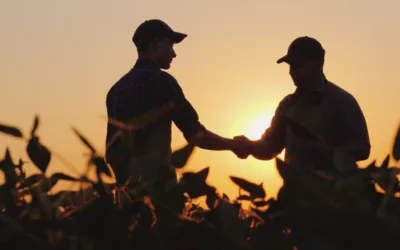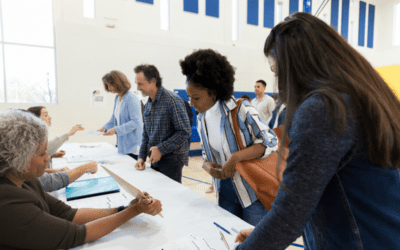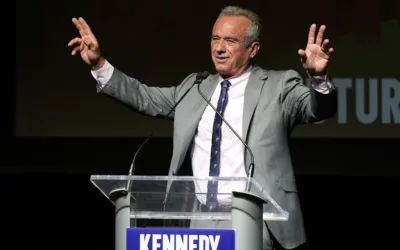
“I remember being in my dorm with some friends and hearing one of them say Natives are ‘dirty savages.’ I realized, that person wouldn’t like me if they knew who I really was.”
It could’ve been a typical ride home on the school bus that day, but instead–it was the first time she ever heard it. She’d carry this moment with her all of her life.
“How do you look so white?” the boy asked. “How can you live on the reservation and be white?”
Aimee Davids was in the 5th grade and had lived on a reservation her entire life, but it wasn’t until that moment that she realized she didn’t look like the ‘typical’ native.
Davids and her older sister Erin are both fair-skinned, with naturally red hair, but only Aimee has freckles. Their parents are also mulitracial, both mixed with white and Native American.
“You look like Michael Jackson and you’re disgusting,” the boy continued. “How can you be friends with someone so disgusting?” he turned and said to her friend.
“I held in my tears until I got home and cried,” said Davids. “It wasn’t until that point that I started to hate how I looked and wished I did look Native.”
The bullying continued everyday until she finally convinced her mom to drive her to school— which happened to be located in the opposite direction of her job and began at the same time as school.

“From that moment on, the struggle of being too white and not white enough took over as an insecurity and made me feel that I didn’t belong anywhere,” said Davids.
Davids is a member of the Stockbridge-Munsee tribe which originated in Massachusetts and New York. The reservation is located in Wisconsin, about 30 minutes east of Shawano and three hours north of Milwaukee. They’re also neighbors with the Menominee reservation.
“I wish people would stop asking, ‘What are you?’ when referring to my ethnicity,” said Davids. “That particular wording makes me feel like I’m not human.”
Even now at 32, Davids is often told that she “doesn’t look Native.”
“I hear it very often from white people, but not as much from other minorities,” said Davids. “Usually other Native Americans can tell I’m Native.”
Davids admitted to struggling with her identity for years. In school, Native students gave her a hard time for hanging out with the “white girls,” and at the same time made fun of her for being “too white.”
“I used to dance in Powwows from age 5 or 6 until about 13,” said Davids. “I was a fancy dancer and I absolutely loved it. It’s a feeling I could never explain and I would dance away all of my problems. I stopped at 13 because I heard girls making fun of me for being a white girl. It’s one of my biggest regrets.”

After high school she attended UW Stevens Point and everyone just assumed she was white, which felt easier, so she let them. She was finally relieved of the burden of “not looking Native enough” and could exist judgment free in that aspect.
“I remember being in my dorm with some friends and hearing one of them say that Natives were “dirty savages,” said Davids. “I realized, that person wouldn’t like me if they knew who I really was. I didn’t speak up and I’m still ashamed of myself for it, but from that moment on I promised myself that I’d never do that again.”
She explained that she’s witnessed how people’s expressions change once they found out she was Native, and how she could tell they thought differently of her, negatively.
“I’d rather be true to myself,” said Davids. “Aside from my freshman year of college, I have always Identified as Native American. I lived on the reservation from birth until 18 and no matter where I live, I’m always a Rez girl at heart.”
Growing up, Davids always saw people on TV and assumed they were rich doctors, lawyers, actors, or singers— because life on the reservation was nothing like the TV portrayed.
“Reservations are full of poverty,” said Davids. “My family was definitely poor, but we always had food and never experienced getting our electricity turned off or anything like that. Everyone around me lived similar lives, so I didn’t really know any different. My mom was good at making little things fun, so I didn’t realize I was missing out on anything.”
There was a darker side to rez life, too though.
“Unfortunately, reservations are full of alcohol and substance abuse, as well as domestic violence,” Davids said. “I didn’t have those experiences personally, but I experienced other issues and thought it was completely normal. It wasn’t until adulthood that I realized my childhood was anything but normal.”
According to American Addiction Centers, the rates of substance abuse among Native Americans are generally much higher than those of the general U.S. population. Data indicate that Native Americans have the highest rates of alcohol, marijuana, cocaine, inhalant, and hallucinogen use disorders compared to other ethnic groups.
Historical trauma, violence, poverty, high levels of unemployment, discrimination, racism, lack of health insurance, and low levels of education are some of the factors behind the high rate of addiction in their communities.
“I couldn’t wait to leave,” said Davids. “I have always been a dreamer and knew I would never achieve my dreams if I stayed on the reservation. Unfortunately, it’s such a rural area so there’s not many job opportunities outside of tribal government or our tribal businesses such as the casino. None of my dreams involved working for either. I always wanted to travel and experience things.”
Now, Davids lives in Milwaukee and owns her own business, Locks and Lashes LLC. She’s engaged to her fiancé Alex, and has built a family of her own. They share one child together, 4-year-old Bennett, as well as her three bonus children, Kira, Jaden, and Amara.

She still struggles with feelings of guilt for leaving behind the place she called home for 18 years.
“I feel very emotional when I visit,” said Davids. “A part of me feels like I should be there trying to better my community, but on the other hand, I need to get out of there and make an impact in other ways. I want to show the world that us Rez kids have just as much potential as everyone else.”
Davids visits the reservation a few times a year to see her mom, vote in tribal elections, and just last year she attended their annual powwow and danced in it.
“I wanted so badly to feel how I felt when I was a kid, which was free—but all I felt was judgment, and like everyone was wondering why the “white girl” was dancing,” said Davids. “When I dance alone in my living room to powwow music, I love it. I hope I can get back into it without the anxiety.”

Bennett danced in his first powwow this year and enjoyed it. Since they live off the reservation, Davids enrolled him in an Indian community school where Native culture is part of the curriculum, which is really important for her.
“I teach my child the same things I was taught as a child, to take care of the Earth and the Earth will take care of you,” said Davids. “I take him on hikes with me often and love showing him how beautiful nature is. I teach him to love and respect all living things and to have empathy.”Davids said she smudges with Bennett on a regular basis to keep her household full of positive thoughts. Smudging is a common ceremonial ritual among indigenous people, used to purify, spiritually cleanse, rid physical spaces of negative energy, and bless. He also joins her to lay down tobacco, and to pray at times of struggle, but to also give gratitude for all they have. In indigenous communities, traditional tobacco is sacred and used for ceremonies, medicine, gifts and other cultural purposes.
“I want my son to be as proud of his culture as I am, even though we do not live on our homelands,” Davids said. “I was taught to never waste anything: food, water, electricity, etc. Our culture believes if you take something from the Earth you should give the Earth something back.”

This billionaire’s PAC is spreading a big lie about Tammy Baldwin, Medicare, and taxpayer savings
Restoration PAC, funded by Uline’s Richard Uihlein, twists the significance of forcing Big Pharma to negotiate for lower bulk pricing on Medicare...

New Biden rules deliver automatic cash refunds for canceled flights, ban surprise fees
In the aftermath of a canceled or delayed flight, there’s nothing less appealing than spending hours on the phone waiting to speak with an airline...

Opinion: It’s time for Congress to fight for small businesses instead of big corporations
May is National Small Business Month. Our elected leaders need to show leadership all year long. For the past 27 years I’ve been fortunate to pursue...

Biden makes 4 million more workers eligible for overtime pay
The Biden administration announced a new rule Tuesday to expand overtime pay for around 4 million lower-paid salaried employees nationwide. The...





